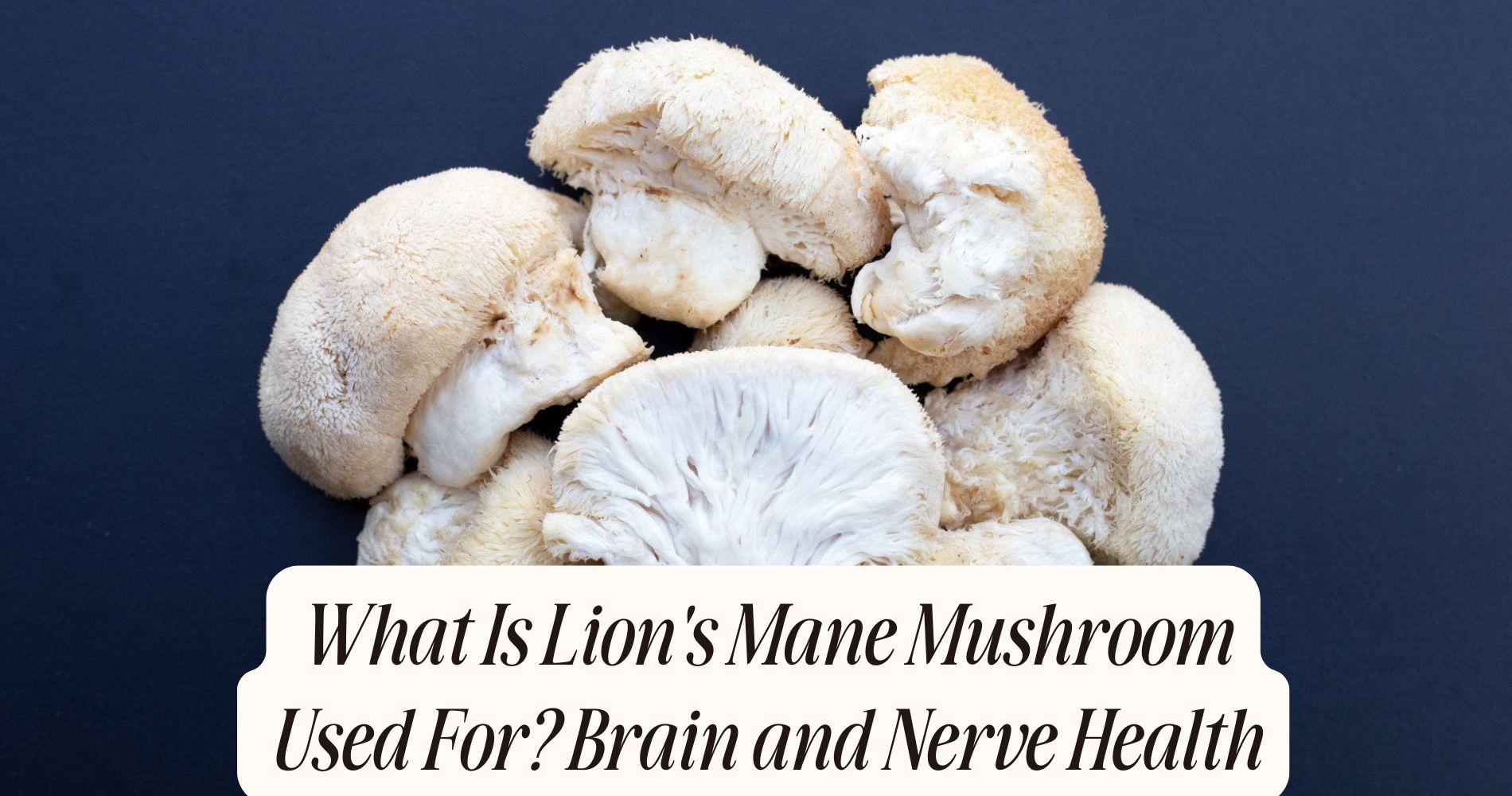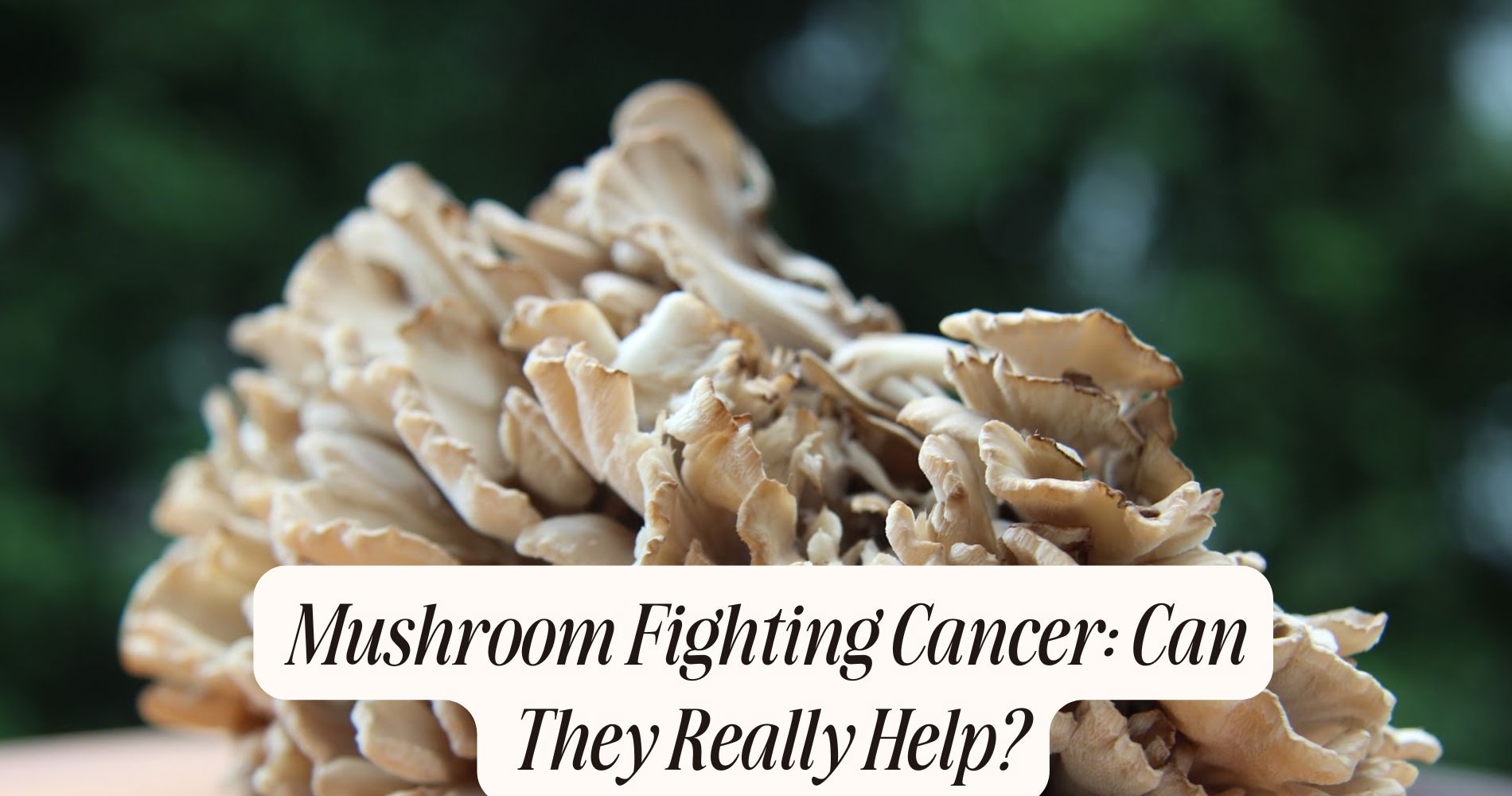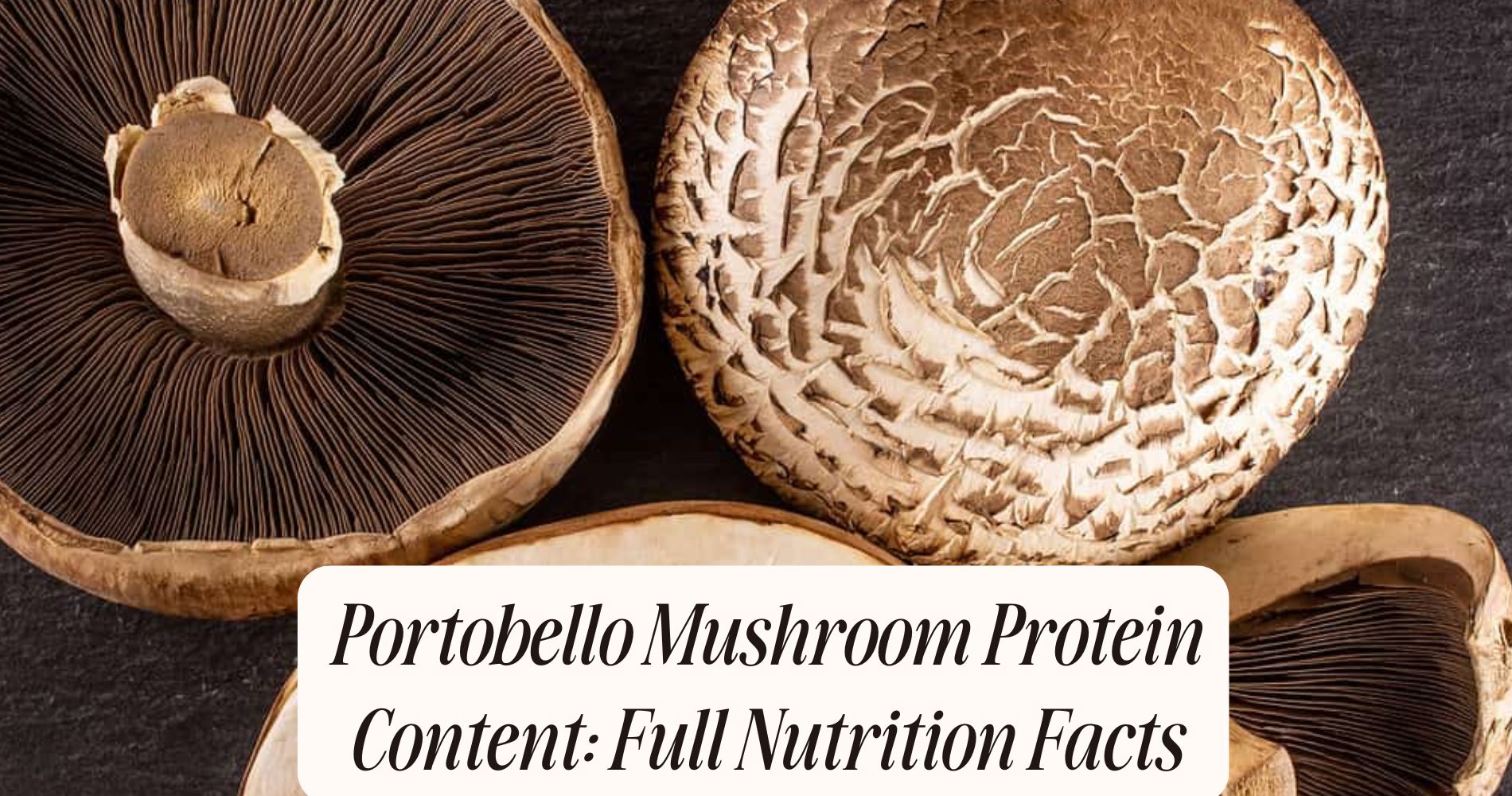
What Is Lion's Mane Mushroom Used For? Brain and Nerve Health
What is Lion's Mane mushroom used for? Lion's Mane Mushroom, or Hericium erinaceus, is used primarily for its brain and nerve health benefits. By stimulating nerve growth factor (NGF) synthesis, it enhances cognitive function, supports memory retention, and promotes neuroprotection through neuron regeneration. Its antioxidant properties encourage a healthier brain environment, while its anti-inflammatory effects bolster immune support. With reported mood-enhancing qualities, it can also reduce anxiety and depression. If you're curious about more specific uses, there's much more to explore.
Understanding Lion's Mane Mushroom
Lion's Mane Mushroom, scientifically known as Hericium erinaceus, is a fascinating fungus renowned for its distinctive appearance and potential health benefits.
Traditionally, you've likely encountered it in Asian herbal medicine, where it's valued for its medicinal properties, particularly in promoting digestive health and boosting the immune system.

This mushroom contains bioactive compounds like erinacines and hericenones, which have been studied for their neuroprotective effects and ability to stimulate nerve growth factor synthesis.
These compounds may contribute to the mushroom's reputation as a natural remedy for various ailments.
Cognitive Enhancement and Memory Support
As you explore the cognitive enhancement potential of Lion's Mane Mushroom, you'll find compelling evidence supporting its role in improving memory and overall brain function.
Research indicates that this mushroom promotes the synthesis of nerve growth factor (NGF), essential for neurogenesis and synaptic plasticity. These mechanisms directly contribute to cognitive health, enhancing your ability to learn and retain information.
In clinical studies, participants experienced significant memory enhancement after regular consumption of Lion's Mane, demonstrating its efficacy in boosting cognitive performance.
Furthermore, its antioxidant properties may protect neurons from oxidative stress, further supporting brain function.
Neuroprotection and Nerve Regeneration
While many are familiar with the cognitive benefits of Lion's Mane Mushroom, its role in neuroprotection and nerve regeneration is equally important.
Research indicates that Lion's Mane stimulates nerve growth factor (NGF) synthesis, necessary for the survival and growth of neurons. This mushroom promotes the regeneration of damaged nerve cells, enhancing your nervous system's resilience.

Additionally, it plays a critical role in maintaining neurotransmitter balance, which is essential for effective communication between neurons. By supporting nerve growth and protecting against neurodegenerative conditions, Lion's Mane may help mitigate cognitive decline.
Incorporating this mushroom into your routine could foster a healthier brain environment, ultimately promoting both neuroprotection and effective nerve regeneration for overall brain health.
Mood Improvement and Stress Reduction
When it comes to mood improvement and stress reduction, the unique compounds found in Lion's Mane Mushroom offer promising benefits. Research suggests that its bioactive components, particularly hericenones and erinacines, may enhance the production of nerve growth factor (NGF), essential for brain health.
This enhancement can lead to improved mood stability by fostering neural connections that regulate emotions. Furthermore, Lion's Mane has been linked to reduced anxiety and depression symptoms, making it a valuable tool for stress management.
Immune System Support
Lion's Mane mushroom offers significant immune system support through its antioxidant properties, which help neutralize harmful free radicals in your body.
Its anti-inflammatory effects can reduce chronic inflammation, a key factor in many diseases.
Additionally, research suggests that Lion's Mane actively stimulates immune cell activation, enhancing your body's ability to fend off pathogens.
Antioxidant Properties
Although many factors influence immune system health, the antioxidant properties of Lion's Mane mushroom play an essential role in supporting your body's defenses.
The mushroom exhibits various antioxidant mechanisms that help neutralize free radicals, which are unstable molecules contributing to oxidative stress. Oxidative stress can damage cells, proteins, and DNA, leading to chronic diseases and impaired immune function.
By incorporating Lion's Mane into your diet, you may enhance your body's ability to counteract these harmful effects. Research suggests that the active compounds in Lion's Mane, such as hericenones and erinacines, can bolster antioxidant enzyme activity, further promoting cellular resilience.
Consequently, using Lion's Mane may be a strategic approach to safeguarding your immune system and overall health.
Anti-Inflammatory Effects
While many natural substances exhibit anti-inflammatory properties, Lion's Mane mushroom stands out for its ability to modulate the immune response effectively.
Research indicates that Lion's Mane compounds, particularly hericenones and erinacines, interact with various cellular pathways to promote anti-inflammatory mechanisms. These compounds may inhibit the production of pro-inflammatory cytokines, thereby reducing inflammation.
Additionally, Lion's Mane has been shown to enhance nerve growth factor (NGF) synthesis, which can further support neuroprotection and reduce inflammatory responses in neural tissues.
By influencing these pathways, Lion's Mane helps maintain a balanced immune response, potentially lowering the risk of chronic inflammatory conditions.
Incorporating this mushroom into your diet may consequently offer significant benefits for your overall health and well-being.

Immune Cell Activation
Building on its anti-inflammatory properties, Lion's Mane mushroom also plays a significant role in immune cell activation.
Research indicates that compounds within Lion's Mane, such as polysaccharides and beta-glucans, enhance immune modulation by stimulating macrophage activity. This activation bolsters your cellular defense, encouraging the production of cytokines, which are essential for orchestrating immune responses.
Consequently, your body becomes more adept at recognizing and combating pathogens. Additionally, Lion's Mane may improve the functionality of T-cells, further amplifying its protective effects.
Potential Applications in Neurodegenerative Diseases
Lion's Mane mushroom shows promise in enhancing cognitive function, particularly in individuals facing neurodegenerative diseases.
Its neuroprotective properties may support neuronal health and mitigate the progression of conditions like Alzheimer's and Parkinson's.
As you explore these applications, consider how its bioactive compounds might contribute to cognitive resilience and overall brain health.
Cognitive Function Enhancement
Cognitive enhancement through natural means is an area of growing interest, particularly regarding neurodegenerative diseases like Alzheimer's and Parkinson's.
Lion's Mane Mushroom, with its active compounds, shows promise in improving memory retention and cognitive flexibility. Studies suggest that it stimulates nerve growth factor (NGF) synthesis, which is essential for the survival and maintenance of neurons.
By potentially enhancing synaptic plasticity, Lion's Mane may support improved learning and memory functions. In addition, its ability to reduce inflammation in the brain could benefit those experiencing cognitive decline.
As you explore potential interventions for neurodegenerative conditions, consider how incorporating Lion's Mane might promote better cognitive health and resilience against memory-related challenges typically associated with aging and neurodegenerative diseases.
Neuroprotective Properties
As research uncovers more about neurodegenerative diseases, the neuroprotective properties of Lion's Mane Mushroom emerge as a significant area of interest.
This mushroom contains bioactive compounds, like hericenones and erinacines, which stimulate nerve growth factor (NGF) synthesis, vital for maintaining brain health. These neuroprotective mechanisms not only promote neuronal survival but also enhance repair processes in damaged brain cells.
Preliminary studies suggest that Lion's Mane may mitigate symptoms associated with Alzheimer's and Parkinson's diseases by reducing inflammation and oxidative stress, which are key contributors to neurodegeneration.
Incorporating Lion's Mane into your routine could support cognitive resilience and overall brain health, making it a promising adjunct in managing neurodegenerative conditions. Continued research is essential to fully understand its potential.
How to Incorporate Lion's Mane Into Your Diet
Incorporating Lion's Mane mushroom into your diet can enhance both culinary variety and health benefits, especially given its rich bioactive compounds.
You can start by exploring various Lion's Mane recipes, such as sautéing the mushroom with garlic and herbs for a delicious side dish. Alternatively, consider adding dried Lion's Mane to soups or stews, as it absorbs flavors well.
For those seeking a convenient option, dietary supplements containing Lion's Mane extract are widely available and can be taken in capsule or powder form. This method guarantees you receive its neuroprotective benefits without altering your meals considerably.
Boost Your Brain with SUPER MUSHROOM GUMMIES
Looking for a convenient way to support your brain and nerve health? Well Gummies' SUPER MUSHROOM GUMMIES are packed with 10 functional mushrooms, including Lion’s Mane, to naturally fuel your brain, enhance focus, and provide immune support. These vegan gummies deliver calmer energy and sharper concentration without the jitters or crash, all while tasting like your favorite wild berry candy. Energize your mind and body all day long with SUPER MUSHROOM GUMMIES!
Frequently Asked Questions
Are There Any Side Effects of Consuming Lion's Mane Mushroom?
When consuming lion's mane mushroom, you should take cautionary measures. Some individuals might experience allergic reactions, including skin rashes or gastrointestinal issues. Always consult a healthcare professional before adding it to your routine.
Can Lion's Mane Be Used in Cooking or Baking?
You can definitely use lion's mane in cooking methods like sautéing or grilling. It adds a unique flavor to various dishes. Plus, try incorporating it into baking recipes for added texture and nutritional benefits.
How Does Lion's Mane Compare to Other Medicinal Mushrooms?
When you compare lion's mane to other medicinal mushrooms, you'll find its unique benefits for cognitive function and nerve health stand out, while others may focus more on immune support or anti-inflammatory properties.
Is Lion's Mane Safe for Children and Pets?
Lion's Mane safety for children and pets isn't well-studied. While many find it beneficial, monitor for any adverse reactions, especially with potential fungal allergies. Prioritize consultations with healthcare professionals regarding children's health and pet safety before use.
Where Can I Buy High-Quality Lion's Mane Supplements?
You can buy high-quality lion's mane supplements from reputable online retailers or local health stores. Make certain to check for third-party testing and customer reviews to guarantee you're getting a product that meets your standards.
Conclusion
Incorporating lion's mane mushroom into your diet can considerably benefit brain and nerve health. Its neuroprotective properties promote cognitive enhancement and memory support, while also aiding in nerve regeneration. Additionally, it offers mood improvement and immune system support, making it a versatile supplement. With promising potential in addressing neurodegenerative diseases, lion's mane stands out as a natural ally for maintaining overall neurological wellness. Embracing this mushroom could be a proactive step toward enhancing your cognitive health.




